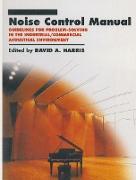Noise Control Manual
BücherAngebote / Angebote:
Excessive noise levels are generally acknowledged to have adverse effects on our environment. Studies indicate that excessive noise levels can cause fatigue in exposed individuals, lower efficiency and productivity, impaired speech communication, and hearing loss. Excessive noise is almost everywhere today - in the office, in schools, hospitals and other institutional facilities, in all classes of public buildings, and in our factories. INDUSTRIAL NOISE High noise levels in factories can make speech communication in the plant difficult and at times impossible. Foremen are often unable to hear warning shouts from co-workers. The problem of hearing loss due to excessive noise exposure is of particular concern to industry, and to the federal government. In the early 1970s, the United States Congress passed the Occupational Safety and Health Act (OSHA) which sets criteria for health hazards and established limits for noise exposure of industrial workers. The OSHA Noise Standard was amended in 1982 to require audiometric testing of all employees exposed to noise levels of 85 dB or above for eight hours. A NOISE IN COMMERCIAL AND INSTITUTIONAL BUILDINGS While noise levels in offices, stores, schools, and other commercial and institutional buildings seldom reach those encountered in many industrial environments, they often reach levels which are distracting to the occupants of such buildings. Impairment of speech communica tion among workers, or inversely the lack of speech privacy, are both deterrents to effiCiency and productivity and are detrimental to the occupants' comfort and sense of well-being.
Folgt in ca. 5 Arbeitstagen
